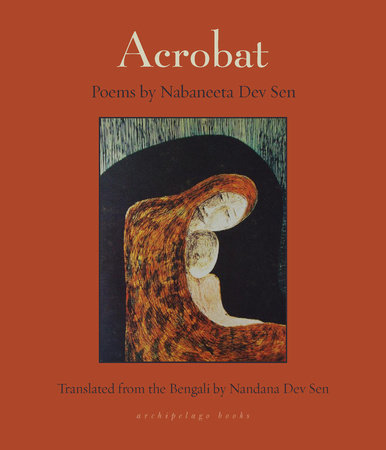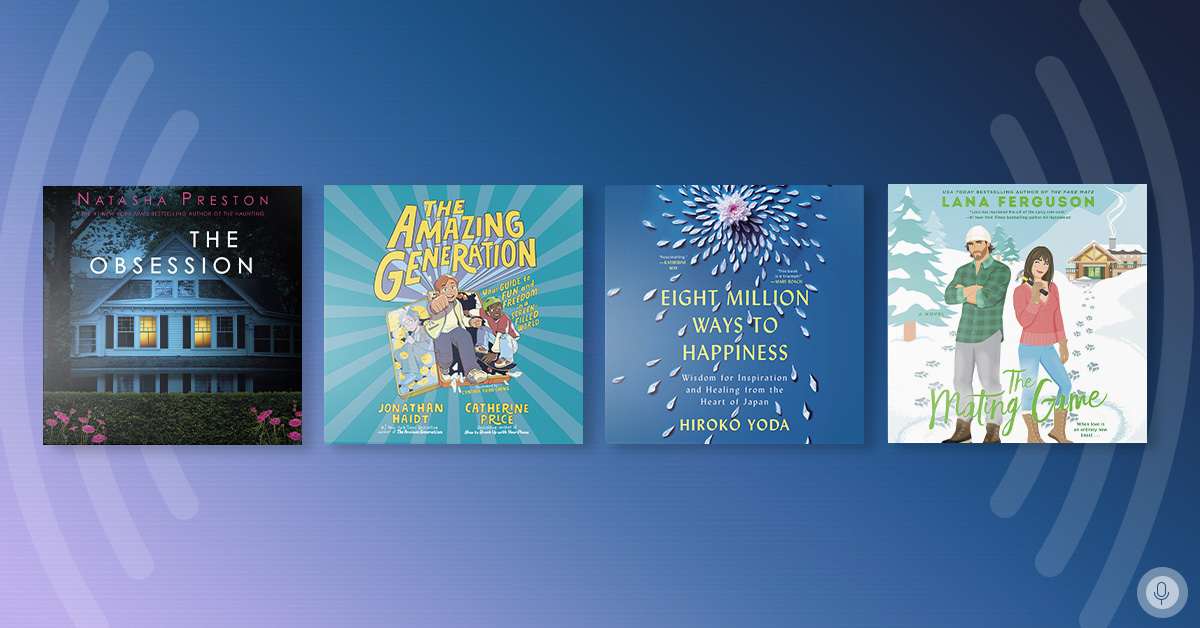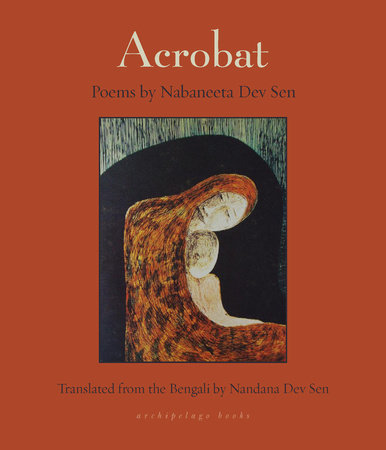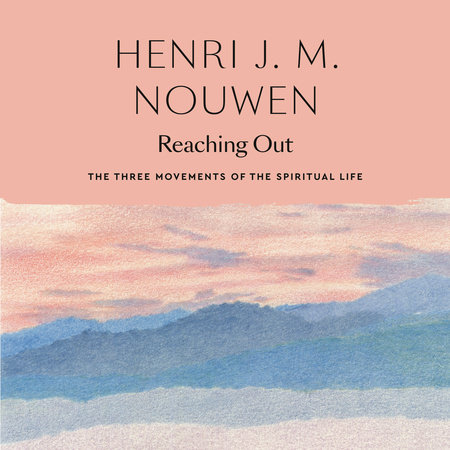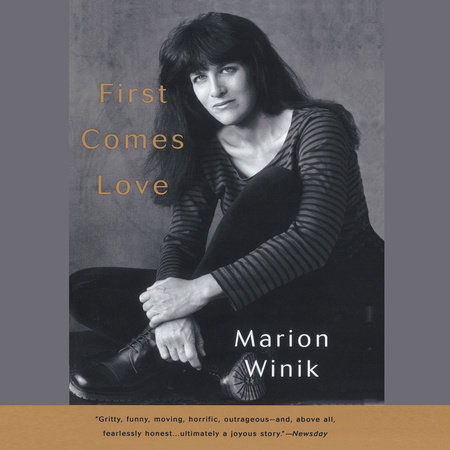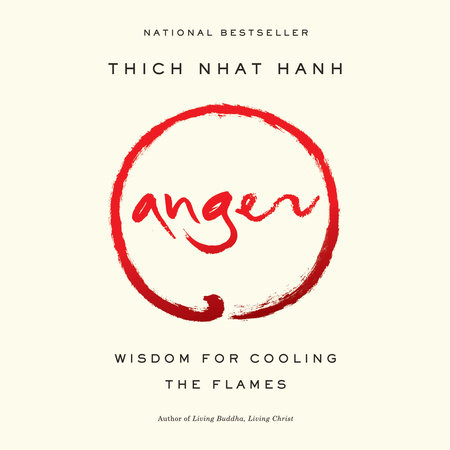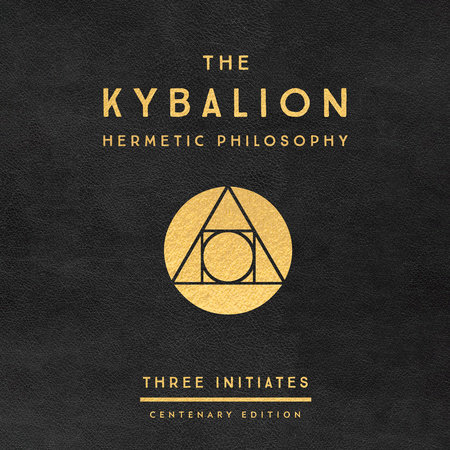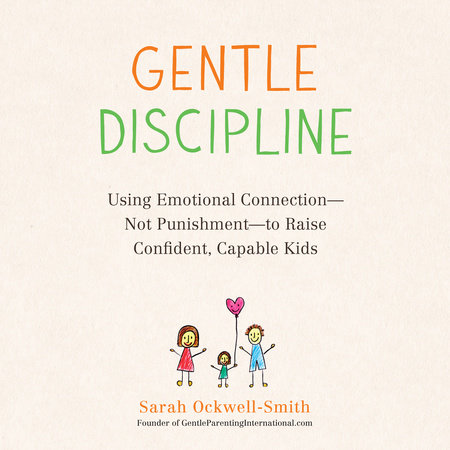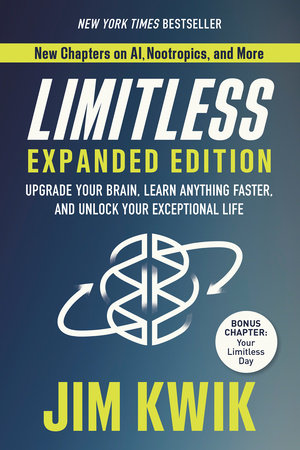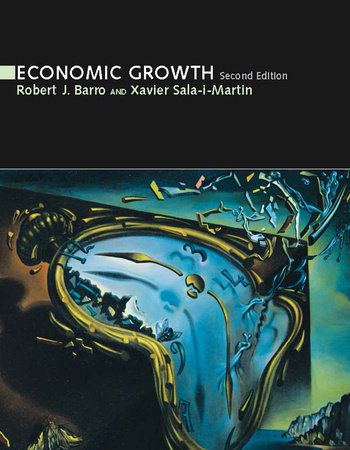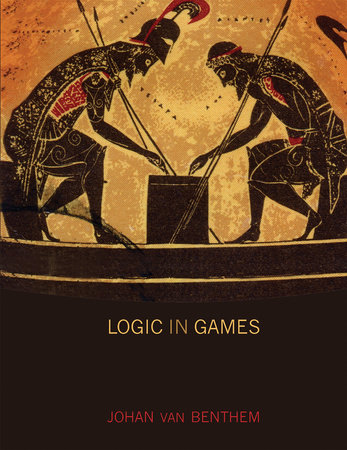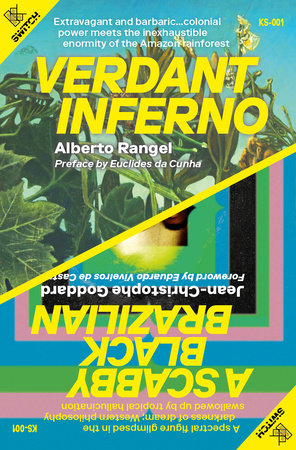“Acrobat offers a window, not only into the reach and emotional depth of Nabaneeta-di’s work (and the riches of contemporary Bengali literature) but into her influence as a feminist too . . . Nabaneeta-di’s poems claim the world, and all that’s in it – love, motherhood, the body, politics and myths from all over.”
–Nilanjana Roy, Financial Times
“Nandana’s own contribution to the collection, ‘A Letter to Ma,’ is full of childhood recollections, including one in which she tells her mother, ‘You’re the most beautiful person in the world!’ causing her mother to laugh out loud. She replies, ‘Every little girl believes that about their mother’—so wise and so true.”
–Samantha Schnee, Words Without Borders
“Nandana’s excellent translations privilege the musicality and rhythm of the language, retaining, in some cases, the internal rhymes. Most of the poems are quite brief: dense jewels surrounded by white space. As I describe them, I find myself reaching again and again for words like clarity, honesty, brilliance. But I think the word I am really searching for is freedom.”
–Shruti Swamy, Los Angeles Review of Books
It was through her creative writing that Dev Sen gave herself a sovereign presence in the Bengali literary sphere . . . She was not afraid of baring her pain in the early poetry she wrote, nor did she ever compromise on questions of freedom.
–Dipesh Chakrabarty
“A new collection of Nabaneeta Dev Sen’s work, some translated into English by the poet and some, with great felicity, by her daughter Nandana Dev Sen, is beautifully produced by Archipelago Books and covers a spectrum of the poet’s gifts from the playful and tender that recall Tagore to the fierce and passionate in her later work, the final poems not so much shadowed by death as ignited by it.”
–Anita Desai, author of Clear Light of Day and Fasting, Feasting
“Poetry and music are both languages of the heart, so it is a special gift when a great poet of the world is finally well-translated. Here, the legendary Bengali poet, Nabaneeta Dev Sen, is re-birthed in English by her daughter, Nandana Dev Sen. I believe that Acrobat is a book that will rescue us and be loved around the world.”
—Gloria Steinem
“These translations of Nabaneeta Dev Sen’s poems capture her quirky yet profound voice so beautifully that I felt I could hear her reading them aloud. These are the poems of an adventurous and indefatigable traveler, observing the world with deep understanding and sympathy, through the prism of a sensibility that is securely rooted in the culture of Bengal.”
—Amitav Ghosh
“These sparkling translations from Nabaneeta Dev Sen’s long, important body of work cycle through her (and our own) exigent concerns: time, identity, the familial. Dev Sen is famous for perfecting a remarkably clear syntax that incorporates sensual detail and repetition not as ornament but as the very ingredients of its riveting precision. And she always follows her own prescription: ‘Stay awake in every line.'”
–Forrest Gander
“One simultaneously hears the voices of mother and daughter in a duet of perfect harmony. The translations don’t read as translations; they read as poems, a new voice perfect in its own right, transcending the barrier of death.”
—Wendy Doniger
“In Nabaneeta Dev Sen’s poems, she walks a tightrope between a black cloud and a cloud that is blood-red. When the rope shivers, you, the reader, can feel it in the lines and hold your breath. Good translations of modern Indian poetry are hard to come by. This one by Nandana Dev Sen has to be one of the best.”
–Arvind Krishna Mehrotra
“Nabaneeta Dev Sen’s Acrobat is that rare, majestic creature: a book that, through every page, underscores the quiet high-wire act required from the poet. It is a feat whose complexity is only matched by its mastery in inhabiting the multiple selves of artist, daughter, lover, mother, translator, scholar and more. Here are poems that capture the pleasures and trials of the human experience – desire, decay, mortality, childbirth, bereavement, wonder – with unsparing detail and sensitivity, and celebrate the gift of language which helps us transcend them.”
—Karthika Naïr
“A prolific, peerless writer who made worlds and words come alive.”
–Raja Sen
“There’s an aching beauty within each one of these translations. There’s assuredness balanced against vulnerability; there’s dignity and compassion. Nabaneeta was an acrobatic writer, uniquely able to negotiate the tightropes of language, migration, separation, union and motherhood, one of the most brilliant writers that I ever knew.”
–Siddhartha Mukherjee, Pulitzer Prize winning author of The Emperor of All Maladies: A Biography of Cancer
“Deep, sparse and yet moving in poetry, Nabaneeta Dev Sen is gorgeous in her immaculate prose. Equally comfortable as a citizen of the world, as a woman exploring her own courtyard, Dev Sen’s literary existence contains several apparently irreconcilable facets.”
–Anita Agnihotri
“It was through her creative writing that Dev Sen gave herself a sovereign presence in the Bengali literary sphere . . . She was not afraid of baring her pain in the early poetry she wrote, nor did she ever compromise on questions of freedom.”
–Dipesh Chakrabarty
“In prose, Dev Sen radiated warmth and joy, enlivened by her trademark self-deprecating humour and a robust sense of hope and compassion even in the direst of circumstances.”
–Somak Ghoshal, Livemint
“One of the doyens of Bengali Literature… I got to read whatever little I could of what was translated in English. But I hope more is translated. I hope more people read her. Quite a prolific writer.”
–Vivek Tejuja
“In everything Nabaneeta Dev Sen was, writer-teacher-feminist, etc, her luminous poetic legacy is this: she (and her words) embraced life with critical exhilaration, anticipated and experienced its short-changes, and came back to life again with one more pirouette after the lights dimmed.”
—Brinda Bose, Associate Professor, Jawaharlal Nehru University
“I knew Nabaneeta Dev Sen as a brilliant academic and a fierce advocate of women’s writing. Now, thanks to Nandana’s superb translations, I’m getting to know another Nabaneeta, whose insights into sadness, loss, and the inexorable march of time illuminate the world of the heart with blinding honesty and verbal grace. Above all, a Nabaneeta who is a very distinguished poet, up there with the best.”
–Martha C. Nussbaum, Ernst Freund Distinguished Service Professor of Law and Ethics at the University of Chicago
“Nabaneeta Dev Sen was one of the most beloved, versatile and prolific writers in Bengali literature. Equally expressive in poetry and prose, fiction and non-fiction.“
–Bookseller at McNally Jackson
“The translator has done a superb job retaining the flavor of the translated poems matching those that the author herself wrote and translated into English . . . Saturated with feelings of sadness, betrayal, haunting memories, and amorous grievances. . . . Nabaneeta’s poetry is a precious addition to international literature.”
–L. Ali Kahn, The New York Journal of Books
“To read Acrobat is to feel the poet’s clarity of compassion, the radiating warmth of her words unshakably ringing out “as an instrument for women’s freedom and unity.” Her poems are conversational and spontaneous . . . There is a plainness to the language presented in Acrobat, that supple modesty is often sincerely meaningful.”
–Jay G. Ying, Poetry Foundation’s blog
“Both (Nabaneeta Dev Sen and Nandana Dev Sen’s) voices come alive through every lively, loving, celebratory line. An ode to the things that make us human and bind us to one another.”
–Anna Claire Weber, the Center for the Art of Translation
“[In her poetry], words are not symbols, not individualised characters, but sentinels that represent hopes, dreams, fears, and inner instincts.”
–Uma Nair, Times of India
“An extraordinary talent, author, poet, and novelist.”
–Trisha De Niyogi, Bengaluru Review
“Her spontaneity, unique style of expression, vast and varied experience of life are evident in her poems, short stories, novels, features, and essays. Her wit and humor, sense of detachment together with heart-to-heart sensibility give her writings a personal touch that is hard to ignore.” —Indian Library of Congress
“The reach of the poems is sometimes startling, even from page to page . . . Most of the poems have a tense abruptness, a compressed energy, that reads variously like angry, rueful, bitter traces of relationship, codas to episodes that aren’t described but may be inferred . . . [They] pivot on a taut self-questioning.”
–Mekong Review
“Acrobat is a powerful demonstration of poetry’s ability to express one writer’s vision of the world. The supplementary materials included in the book, from translator Nandana Dev Sen, offer a firsthand look at both the author’s life and the translator’s approach to rendering her mother’s poems in a new language. It’s a moving and at times elegiac study of a singular perspective on the world.”
–Tobias Carroll, Words Without Borders
“The “strange and dazzling world” Dev Sen evokes . . . is everywhere throughout Acrobat . . . Everything is alive and bright and noisily crashing: anger, revolt, grief, pain, yes, but especially life—or at least momentarily, until “in the heat of the sun, all sounds fade away.” This, I think, is the heart of this collection: Dev Sen always finds a way to surprise us with life, only to remind us that we are finite.”
–Nicola Vulpe, Asymptote
“The poems are vibrant and full of longing – whether for love, for children, for lost youth, or for prolonging life . . . Acrobat is moving in both content and context: translated with great heart by the poet’s daughter and published posthumously, it is a two-way love story between generations and a celebration of life in all its complexity and contradictions.”
–Dr. Helen Vassallo, Translating Women
“Acrobat by Nabaneeta Dev Sen is a tour de force collection of poetry from a master of the craft. Not only is the collection expansive in subject and image, but ambitious in feeling. Reading the collection, the reader becomes the acrobat, leaping between the poems and the worlds Dev Sen creates within them.”
–Katrina Agbayani, Acta Victoriana
“Deft and lyrical. The poems are full of emotion . . . Most are contemplative, reflections on a terrific and terrifying world, and the speaker within it . . . Whether writing in broad strokes about love and life, or writing about specific places, like the Ganges River, or contemporary politics and politicians, Dev Sen’s poems are profound and timeless.”
–Clara Altfeld, Kenyon Review
“Written with compassion, but also with an edge . . . the poems lay bare private griefs, anxieties, rages, desires, and ecstasies—and hint at the contours of an eventful and sometimes stormy life.”
–Harvard Magazine
“Nabaneeta Dev Sen’s poetry, to my reading, is distinguished by an alertness to the moment in all its strangeness and wonder. She is attuned to the anxieties and the triumphs of life, distilling key elements into vivid images . . . It is the distinctive voice, the vulnerability and the openness that combine to make the poems in this collection so strong.”
–Joseph Schreibe, Rough Ghosts
“As I read through Acrobat, I found myself getting drawn in by the distinctive way Nabaneeta looked at life . . . I was delighted with each new detail I learned about life in India, including evocative references to the sweltering heat of Kolkata, teapoys, Oxfam blankets, monsoons, the Ganga River, cricket, and Lal Ded, a poet and Kashmiri mystic from the 14th century . . . Nandana Dev Sen’s invitation to savor Bengali women’s verse through these lovingly translated poems is very much a cause for a ‘grand celebration.”
–Nancy Naomi Carlson, Arts Fuse
“Themes of poetic self-making weave throughout the five sections of Acrobat and inform Nabaneeta’s obsessions with kinship, language, translation, and time. . . . ‘How do I know who I am until I have ‘written’ myself, and read myself? There I was, me, Nabaneeta, taking shape, on a piece of paper.'”
-– Zachary Kinsella, Full Stop
